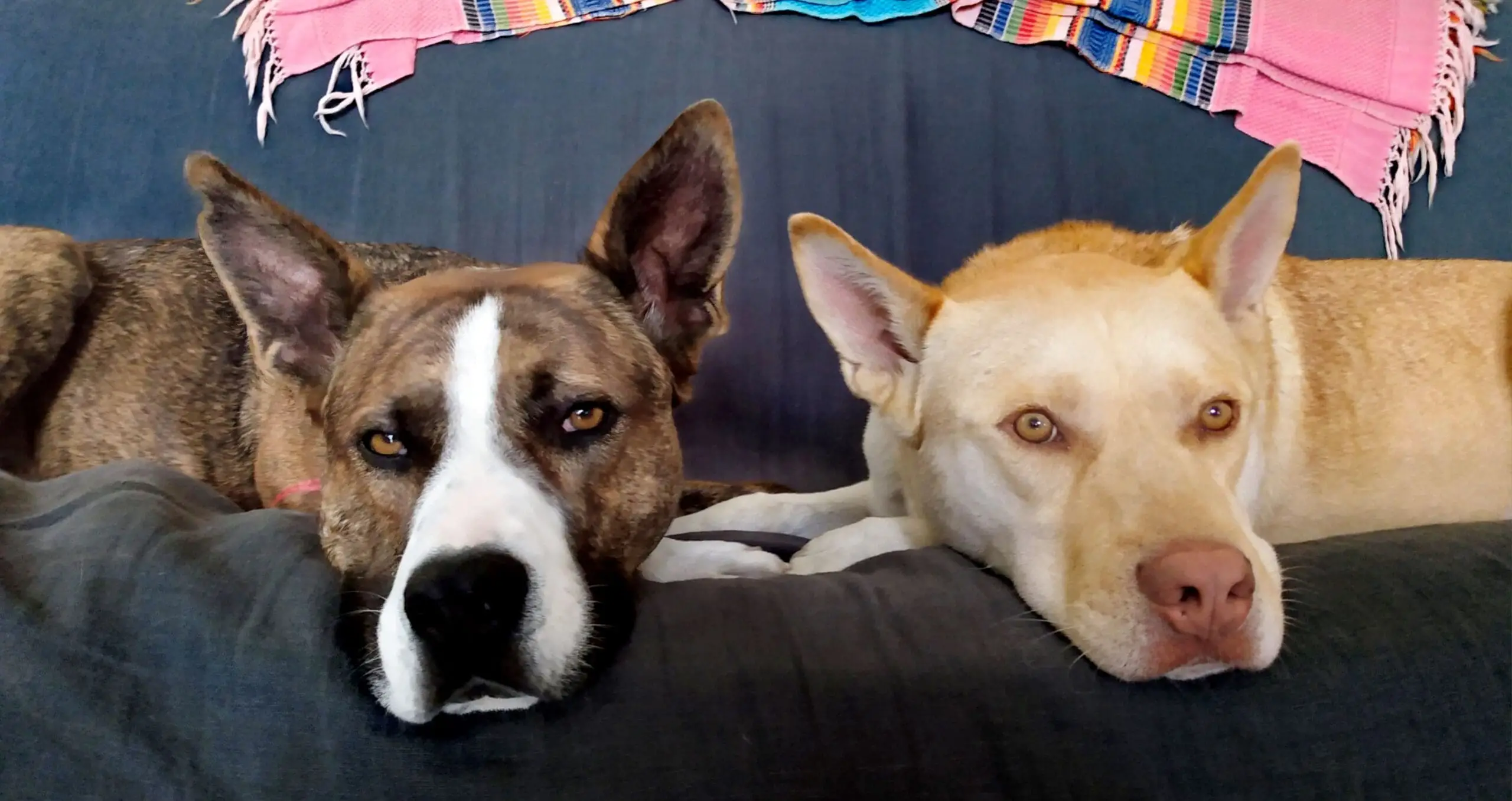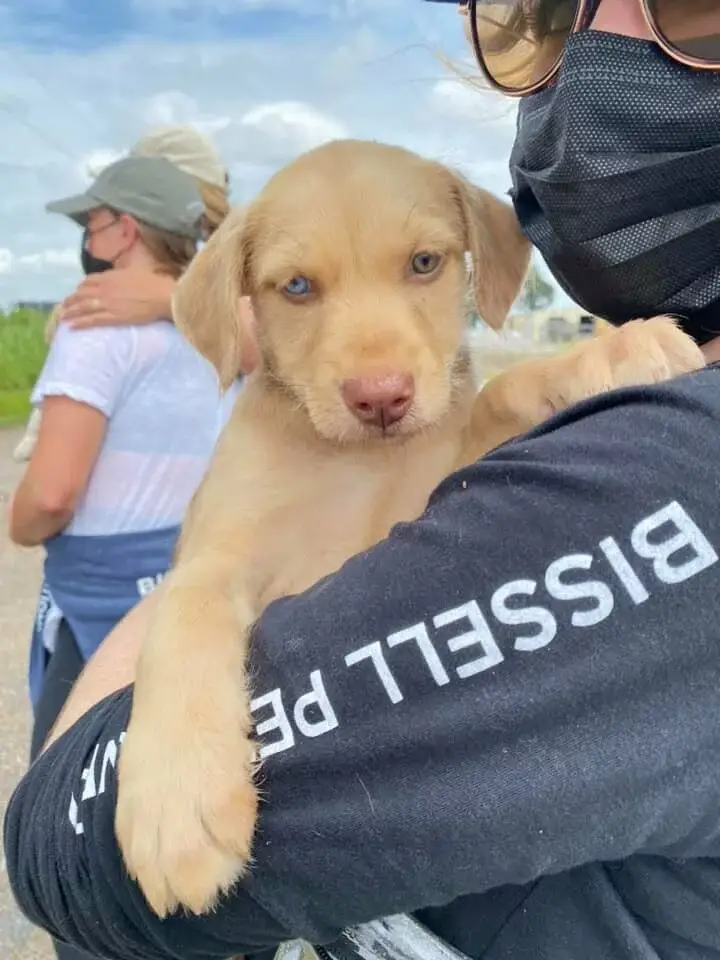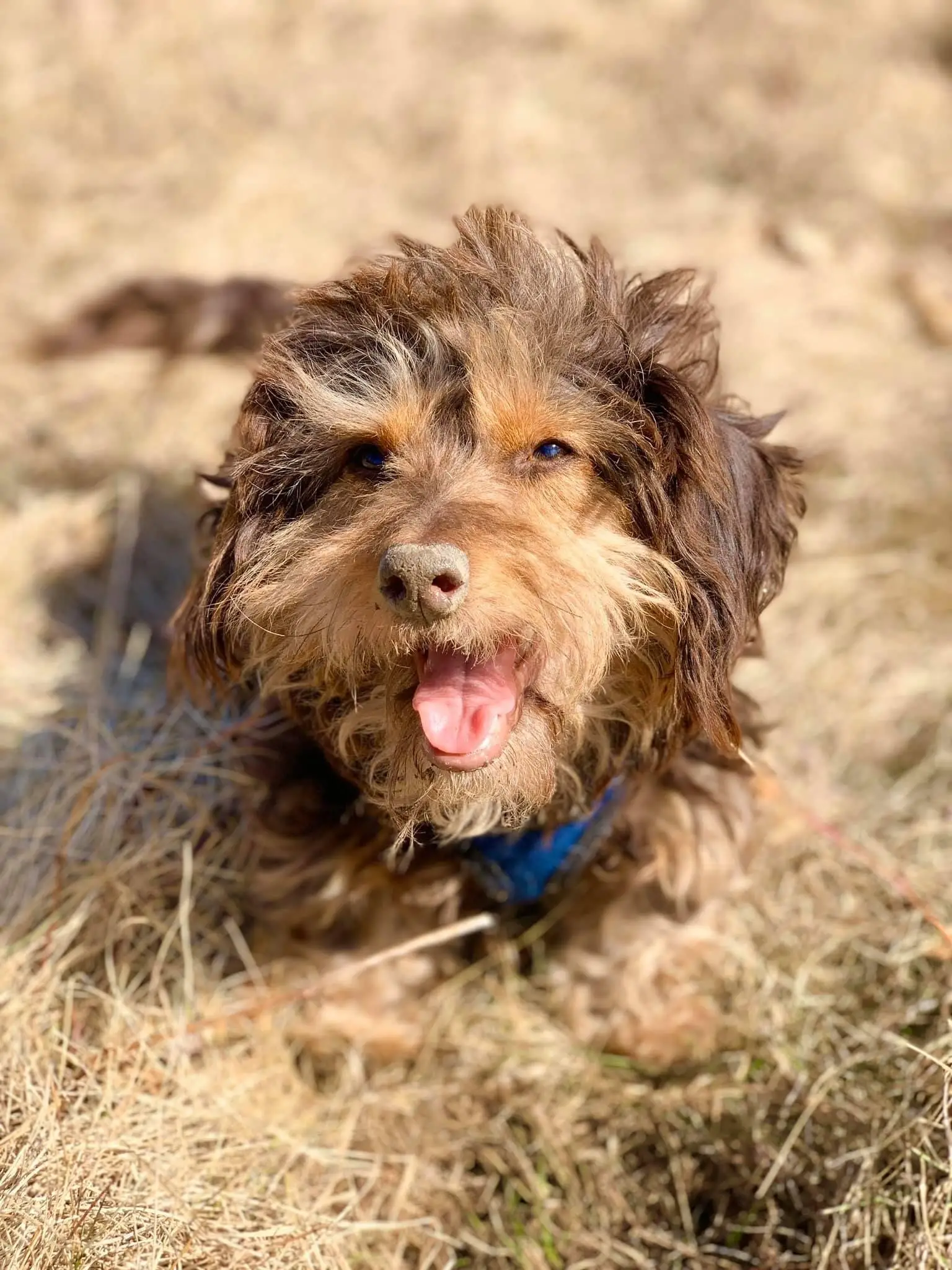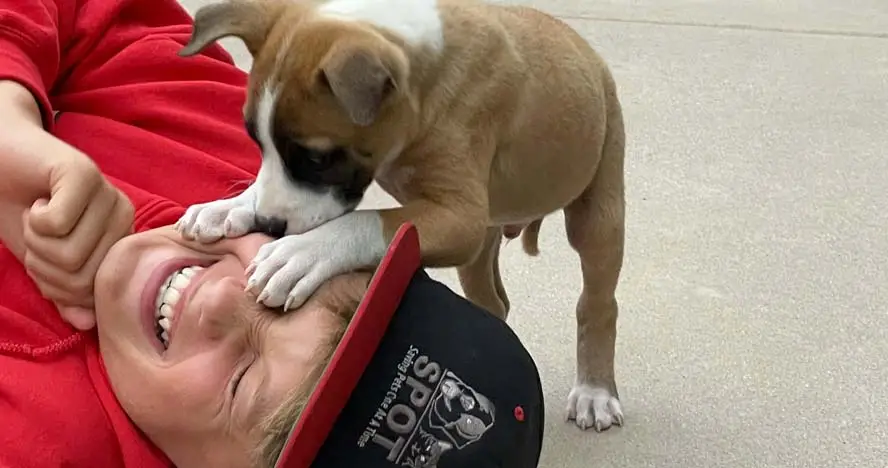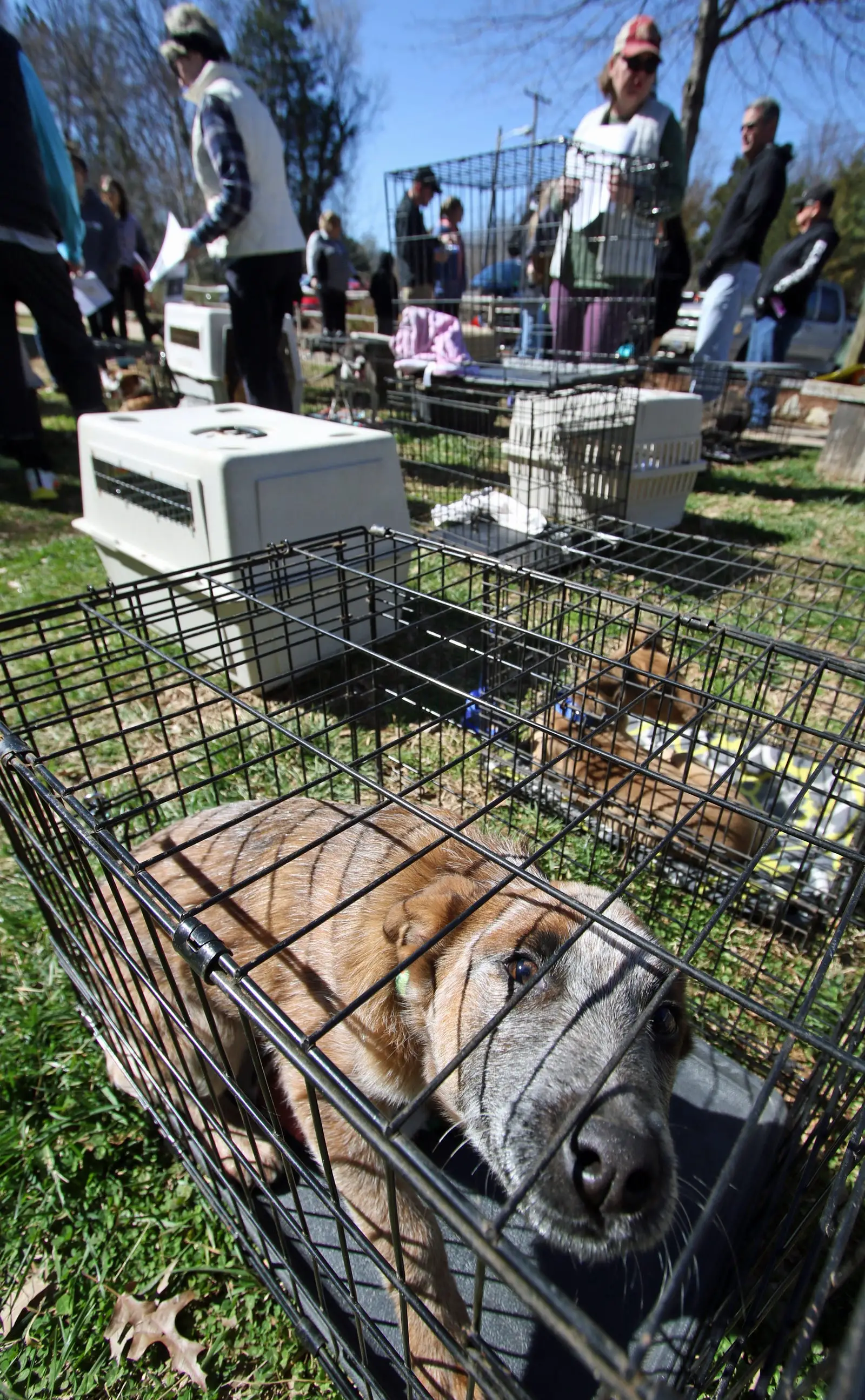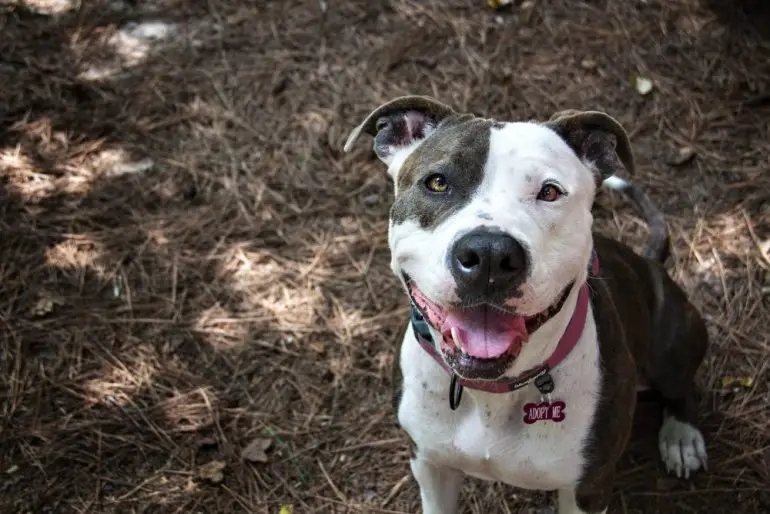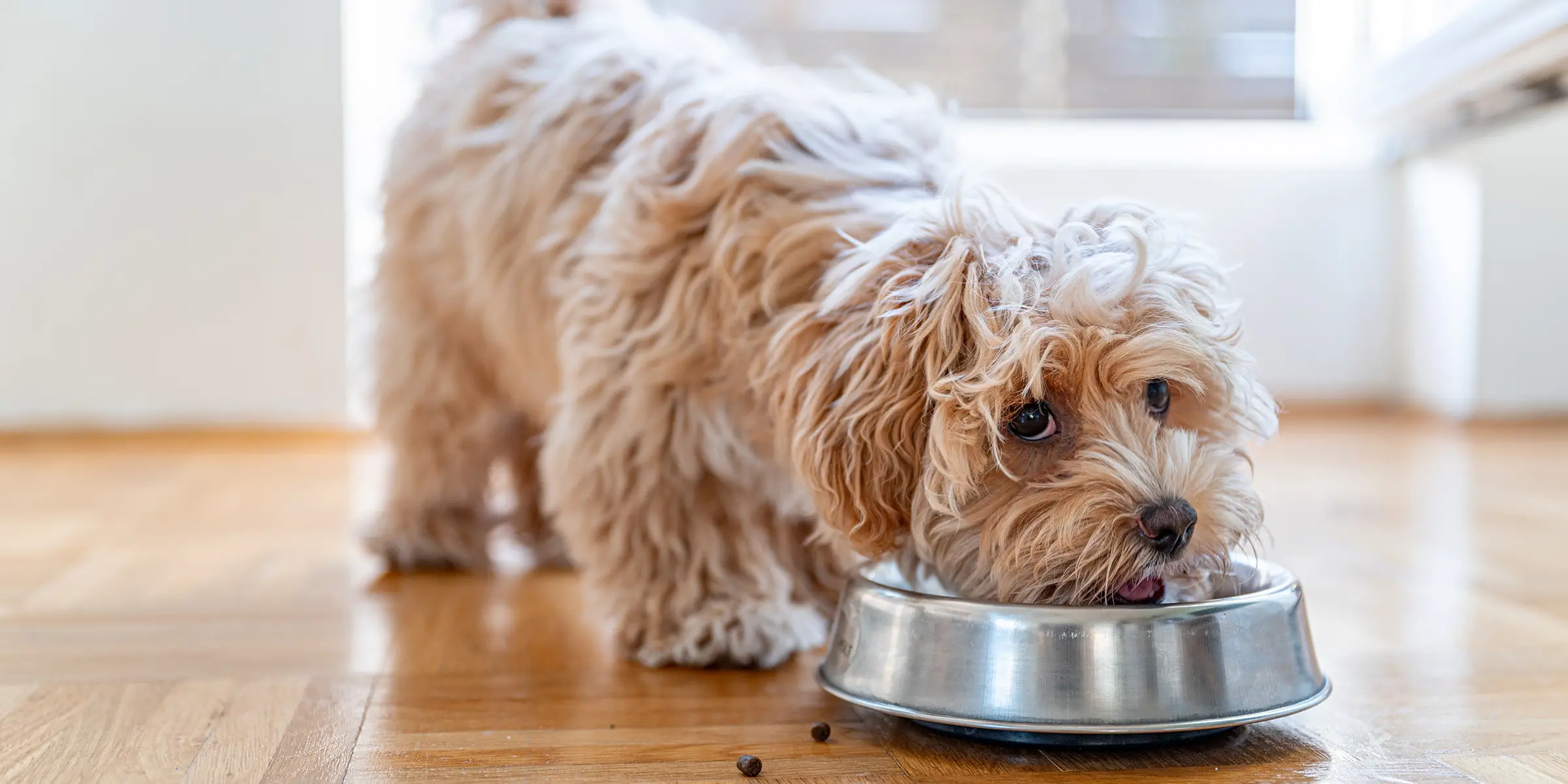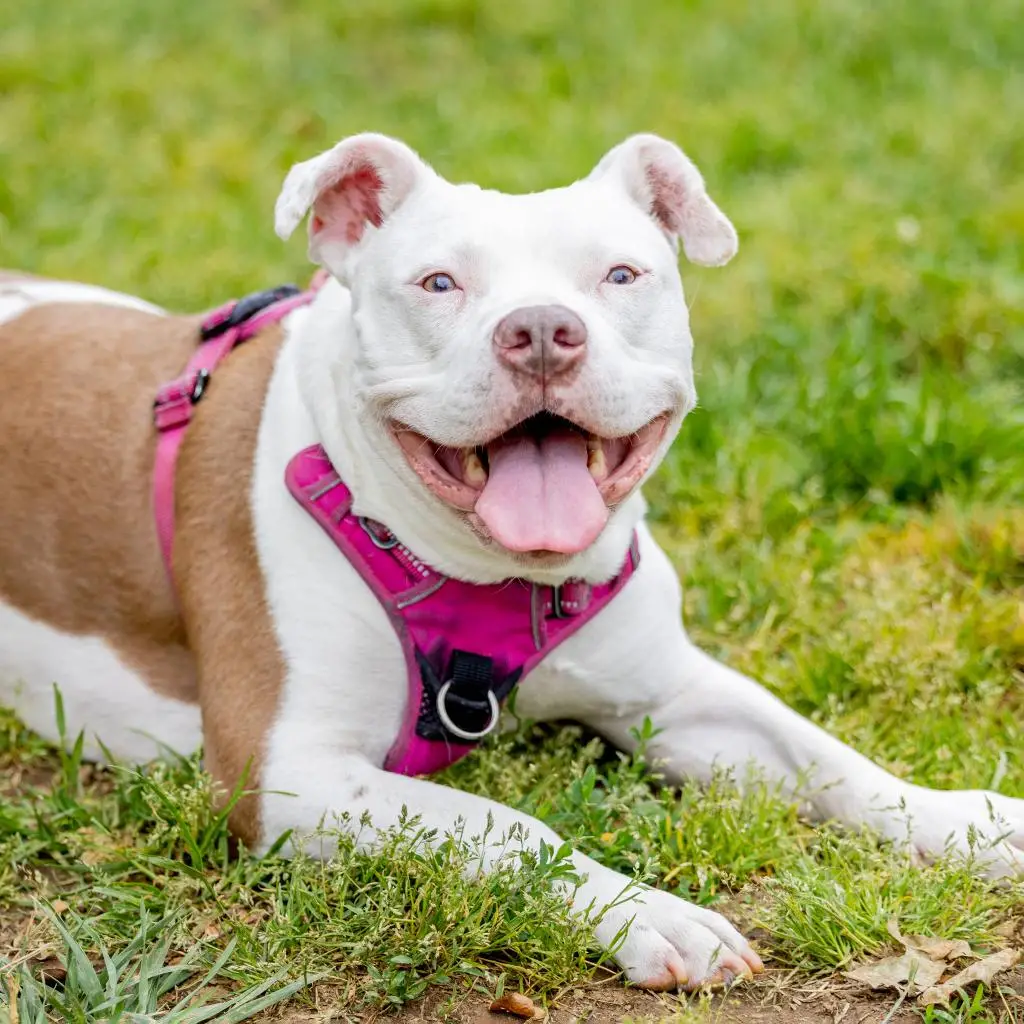Joining a Puppy Organization

Adopting a puppy can be an exciting and rewarding experience, but it also comes with its fair share of challenges. From housebreaking to training to providing proper nutrition and healthcare, raising a furry friend takes time, patience, and dedication. One way to make the journey smoother is by joining a puppy organization. These groups are dedicated to supporting new puppy owners through education, resources, and community events. In this guide, we’ll explore the benefits of joining a local puppy organization and provide tips for getting involved.
Adopting a Puppy: What to Consider Before You Commit
Before you adopt a puppy and join a puppy organization, there are several factors to consider. First and foremost, make sure that you have the time, energy, and resources to care for a furry friend. Puppies require a lot of attention, and you’ll need to be able to devote adequate time to socialization, training, exercise, and play.
Next, consider your living situation. Do you have enough space for a puppy to run and play? Is your home pet-friendly and safe? If you’re renting, be sure to check with your landlord to ensure that pets are allowed and whether there are any restrictions on breed or size.
Finally, think about the financial aspect of owning a puppy. In addition to the initial adoption fee, you’ll need to budget for food, toys, grooming supplies, veterinary checkups, and potential medical emergencies. It’s important to be realistic about your budget and plan accordingly.
By taking these factors into consideration, you’ll be better prepared to adopt a puppy and get involved with a local puppy organization.
The Benefits of Joining a Local Puppy Organization
Joining a puppy organization has many benefits, including:
Education and Support
Puppy organizations offer educational resources and support for new and experienced puppy owners alike. Whether you’re looking for training tips, nutrition advice, or guidance on how to care for a specific breed, these groups can provide valuable information and resources.
Find Non-Profit Pet Organizations Near You Local Animal Charities
Community Events
Puppy organizations often host community events, such as adoption fairs, training classes, and socialization playgroups. These events are a great way to meet other puppy owners, learn from experts, and socialize your furry friend.
Volunteer Opportunities
Many puppy organizations rely on volunteers to help with everything from fostering puppies to organizing events. Volunteering is a rewarding way to make a difference in your community while gaining hands-on experience with puppies.
Advocacy and Awareness
Puppy organizations also work to promote animal welfare and raise awareness about important issues affecting dogs and their owners. By joining a puppy organization, you can get involved in advocacy efforts and make a positive impact in your community.
How to Train Your Puppy for Success: Tips from the Pros
Training your puppy is an essential part of ensuring that they grow up to be well-behaved and happy dogs. Here are some tips from the pros:
Top Golden Retriever Rescue Organizations for Saving Pups in Need
Start Early
It’s never too early to start training your puppy. In fact, the earlier you begin, the easier it will be to establish good habits and prevent bad ones from forming. Puppies are most receptive to learning between 8-16 weeks of age, so take advantage of this critical period to start basic obedience training.
Use Positive Reinforcement
Positive reinforcement is the most effective way to train your puppy. This means rewarding good behavior with treats, praise, and affection. Punishing or scolding your puppy for bad behavior is not only ineffective but can also damage your relationship with them.
Be Consistent
Consistency is key when it comes to training your puppy. Make sure that everyone in your household uses the same commands and rewards system. This will help your puppy understand what’s expected of them and make training more effective.
Keep Sessions Short and Fun
Puppies have short attention spans, so it’s important to keep training sessions short and engaging. Aim for 10-15 minute sessions, and try to make them fun and interactive.
Seek Professional Help if Needed
If you’re struggling with training your puppy, don’t hesitate to seek professional help. A certified dog trainer can provide guidance and support to help you and your furry friend succeed.
Puppy Health and Wellness: Understanding Common Health Issues
Ensuring that your puppy stays healthy is a top priority. Here are some common health issues to be aware of:
Parasites
Parasites such as fleas, ticks, and worms can cause a range of health problems in puppies. It’s important to follow a regular parasite prevention regimen recommended by your veterinarian.
Vaccinations
Vaccinations are essential to protect your puppy from a range of diseases. Your veterinarian will recommend a vaccination schedule based on your puppy’s age and risk factors.
Dental Health
Dental health is often overlooked but is an important aspect of overall wellness. Regular brushing and dental checkups can prevent dental disease and ensure that your puppy’s teeth and gums are healthy.
Nutritional Needs
Puppies have specific nutritional needs that are different from adult dogs. It’s important to provide them with a balanced diet that includes high-quality protein, fats, and carbohydrates. Your veterinarian can recommend the best food for your puppy based on their age, breed, and health status.
Genetic Health Issues
Some dog breeds may be predisposed to certain genetic health issues. For example, German Shepherds are prone to hip dysplasia and Boxers may develop heart conditions. It’s important to research your chosen breed and be aware of any potential health concerns.
Signs of Illness
It’s important to be able to recognize signs of illness in your puppy so that you can seek veterinary care promptly. Some common signs of illness include vomiting, diarrhea, lethargy, loss of appetite, coughing, sneezing, and difficulty breathing.
By staying informed about common health issues and providing your puppy with proper nutrition, exercise, and veterinary care, you can help ensure that they stay healthy and happy.
Puppy Socialization 101: Why It’s Important and How to Do It Right
Socializing your puppy is essential for their development and well-being. Here’s what you need to know:
Why Socialization Is Important
Socialization helps puppies develop the skills and confidence they need to interact with people, other dogs, and new environments. Puppies who aren’t properly socialized are more likely to develop anxiety, fear, and aggression issues.
When to Start Socializing
Puppies are most receptive to socialization during their critical period of development, which typically lasts until around 16 weeks of age. During this time, it’s important to expose your puppy to a variety of people, animals, and environments.
How to Socialize Your Puppy
Start by exposing your puppy to familiar people and environments, such as family members and your home. Gradually introduce them to new people, other dogs, and novel environments such as parks or pet stores. Use positive reinforcement techniques to reward good behavior and help your puppy feel comfortable in new situations.
Socialization Classes
Socialization classes are a great way to help your puppy get exposure to different people and dogs in a controlled environment. Many puppy organizations offer socialization classes, so be sure to check with your local group for more information.
By providing your puppy with plenty of socialization opportunities, you can help them develop into a well-adjusted and confident adult dog.
Fostering a Puppy: What You Need to Know Before You Get Started
Fostering a puppy is a rewarding way to make a difference in the lives of animals in need. Here’s what you should consider before you get started:
Time Commitment
Fostering a puppy requires a significant time commitment. You’ll need to be able to dedicate time to training, socialization, exercise, and veterinary care. Make sure that you have enough time in your schedule to provide the care and attention that your foster puppy needs.
Space and Resources
Make sure that you have enough space and resources to provide a safe and comfortable home for your foster puppy. You’ll need to provide food, toys, bedding, and any necessary supplies. You’ll also need to ensure that your home is pet-friendly and safe.
Emotional Considerations
Fostering a puppy can be emotionally challenging, especially if you become attached to your furry friend. Be prepared for the potential for heartbreak when it’s time to say goodbye to your foster puppy.
Benefits of Fostering
Fostering a puppy is a rewarding way to make a difference in your community and help puppies find their forever homes. It’s also a great way to gain hands-on experience with puppies and learn more about animal welfare.
If you’re interested in fostering a puppy, reach out to your local puppy organization for more information.
Puppy Nutrition: Choosing the Right Food for Your Furry Friend
Providing your puppy with proper nutrition is essential for their health and well-being. Here’s what you need to know about choosing the right food:
Nutritional Needs
Puppies require a balanced diet that provides them with all the essential nutrients they need to grow and develop. This includes high-quality protein, fats, and carbohydrates, as well as vitamins and minerals.
Age and Breed Considerations
The nutritional needs of puppies vary depending on their age and breed. For example, large breed puppies may require a different balance of nutrients than small breed puppies. Be sure to choose a food that is appropriate for your puppy’s age and breed.
Types of Food
There are several types of dog food available, including kibble, wet food, dehydrated food, and raw food. Each type has its own benefits and drawbacks, so it’s important to choose the one that works best for your puppy and fits within your budget.
Reading Labels
When choosing a dog food, it’s important to read the label carefully. Lookfor a statement from the Association of American Feed Control Officials (AAFCO) that the food is complete and balanced. You should also look for high-quality ingredients, such as whole meats and vegetables, and avoid foods with fillers and by-products.
Transitioning to a New Food
If you’re switching your puppy to a new food, it’s important to do so gradually to avoid digestive upset. Start by mixing a small amount of the new food with their current food and gradually increase the proportion over time.
By providing your puppy with high-quality, balanced nutrition, you can help them grow up strong and healthy.
Puppy Breeds 101: Understanding the Different Types of Dogs
There are hundreds of different dog breeds, each with its own unique characteristics and personality traits. Here’s a brief overview of some of the most popular breeds:
Labrador Retriever
Labrador Retrievers are friendly, energetic dogs that make great family pets. They’re intelligent and easy to train, and they love to play and be active.
Golden Retriever
Golden Retrievers are loyal, affectionate dogs that get along well with people of all ages. They’re highly trainable and make great therapy dogs.
German Shepherd
German Shepherds are intelligent, versatile dogs that excel in a variety of roles, including police and military work, search and rescue, and service dogs. They’re protective of their families and make excellent watchdogs.
Bulldog
Bulldogs are known for their wrinkled faces and laid-back personalities. They’re gentle, affectionate dogs that make great companions for families.
Poodle
Poodles are highly intelligent and trainable dogs that come in three sizes – toy, miniature, and standard. They’re hypoallergenic and low-shedding, making them a good choice for people with allergies.
Beagle
Beagles are curious and friendly dogs that love to explore their surroundings. They have a keen sense of smell and make excellent hunting dogs.
Boxer
Boxers are energetic, playful dogs that love to be around people. They’re loyal and protective of their families and make great watchdogs.
By understanding the characteristics and personalities of different dog breeds, you can choose the one that’s right for you and your family.
Volunteering with a Puppy Rescue: How to Make a Difference in Your Community
Volunteering with a puppy rescue is a fulfilling way to make a difference in the lives of animals in need. Here’s how to get started:
Find a Local Rescue
Research local puppy rescues in your area and reach out to them to express your interest in volunteering. Many organizations rely on volunteers to help with everything from fostering puppies to event planning.
Identify Your Skills and Interests
Think about your skills and interests and how they could benefit a puppy rescue. Do you have experience with social media or event planning? Are you comfortable with dog handling? Knowing your strengths can help you find the right volunteer opportunity.
Attend Orientation and Training
Most puppy rescues require volunteers to attend an orientation and training session before getting started. This will provide you with the information and skills you need to be successful in your role.
Make a Commitment
Volunteering with a puppy rescue requires a commitment of time and energy. Make sure that you’re able to commit to the organization’s needs and schedule before getting started.
By volunteering with a puppy rescue, you can make a difference in your community while gaining hands-on experience with puppies and animal welfare.
From Puppyhood to Adulthood: Understanding the Stages of Dog Development
Understanding the different stages of dog development can help you provide your furry friend with the care and support they need at each phase of their life. Here are the stages of dog development:
Neonatal Stage
The neonatal stage lasts from birth until around two weeks of age. During this time, puppies are completely dependent on their mother for food, warmth, and protection.
Transitional Stage
The transitional stage lasts from two to four weeks of age. Puppies start to become more mobile and develop their senses during this time.
Socialization Stage
The socialization stage lasts from four to 12 weeks of age. This is a critical period for puppies, as they develop the skills and confidence they need to interact with people, other dogs, and new environments.
Juvenile Stage
The juvenile stage lasts from three to six months of age. Puppies start to lose their baby teeth and develop adult teeth during this time. They also go through a growth spurt and may experience behavior challenges related to adolescence.
Adolescent Stage
The adolescent stage lasts from six months to two years of age. Puppies continue to grow and develop during this time, and may experience ongoing behavior challenges related to maturation.
Adult Stage
The adult stage begins at around two years of age and lasts throughout the rest of the dog’s life. Dogs are fully grown and mature duringgums are healthy.
Nutrition
Proper nutrition is crucial for your puppy’s growth and development. Make sure to feed them a balanced diet that meets their specific nutritional needs.
Behavioral Issues
Behavioral issues such as anxiety, aggression, and excessive barking can be signs of underlying health problems. If you notice any concerning behavior, consult with your veterinarian or a certified dog trainer.
By staying informed about common health issues and working closely with your veterinarian, you can help ensure that your puppy stays happy and healthy throughout their life.
How to Get Involved with a Local Puppy Organization
If you’re interested in joining a local puppy organization, here are some tips for getting started:
Research Local Organizations
Start by researching the puppy organizations in your area. Look for groups that align with your interests and goals, whether it’s breed-specific groups, rescue organizations, or advocacy groups.
Attend Events
Attend community events hosted by the organizations you’re interested in. This is a great way to meet other puppy owners and get a sense of the group’s mission and activities.
Volunteer
Volunteering is a rewarding way to get involved with a puppy organization while making a difference in your community. Contact the organizations you’re interested in to learn more about volunteer opportunities.
Join Online Communities
Many puppy organizations have active online communities where members can connect and share resources. Join these groups to stay up-to-date on events, resources, and news related to puppies.
Joining a puppy organization is a great way to get involved in your local community and support animal welfare. By following the tips outlined in this guide, you can make the most of your experience and help ensure that your furry friend has a happy and healthy life. ## How to Train a Puppy: Tips for Success
Training your puppy is an important part of their development and can help foster a strong bond between you and your furry friend. Here are some tips for successful puppy training:
Start Early
It’s never too early to start training your puppy. Begin with basic commands such as “sit” and “stay” and gradually introduce more advanced skills.
Use Positive Reinforcement
Positive reinforcement is a highly effective training technique that involves rewarding good behavior with treats, toys, and praise. This helps your puppy associate good behavior with positive rewards and encourages them to repeat the behavior in the future.
Be Consistent
Consistency is key when it comes to puppy training. Make sure everyone in your household uses the same commands and techniques to avoid confusion for your furry friend.
Keep Training Sessions Short
Puppies have short attention spans, so keep training sessions brief and frequent. Five to ten minutes per session is usually sufficient.
Socialize Your Puppy
Socialization is an important component of training, as it helps your puppy develop the social skills they need to interact with people and other dogs. Expose your puppy to a variety of new environments, people, and animals to help them learn how to behave appropriately.
Seek Professional Help When Necessary
If you’re struggling with your puppy’s behavior or feel overwhelmed, don’t hesitate to seek professional help from a certified dog trainer or behaviorist.
By following these tips, you can help ensure that your puppy receives the training they need to grow into a happy and well-behaved adult dog.
Traveling with Your Puppy: Tips for Safe and Stress-Free Trips
Traveling with your puppy can be a fun and rewarding experience, but it requires careful planning and preparation to ensure their safety and comfort. Here are some tips for safe and stress-free trips with your furry friend:
Plan Ahead
Research pet-friendly accommodations and activities at your destination, and make sure that your puppy is up-to-date on vaccinations and has any necessary travel documents.
Prepare a Travel Kit
Pack a travel kit for your puppy that includes food, water, treats, bedding, toys, and any necessary medications. Bring along a leash, collar, and identification tags as well.
Secure Your Puppy
Make sure your puppy is securely restrained while traveling to prevent injury or escape. Use a carrier or harness to keep them safe during car rides or flights.
Take Breaks
Take frequent breaks during long car rides to give your puppy a chance to stretch their legs, go potty, and get some fresh air.
Be Mindful of Temperature
Be mindful of the temperature inside your vehicle and ensure that your puppy stays comfortable during the trip. Never leave your furry friend in a hot car, even for a few minutes.
Keep Your Puppy Calm
Bring along items that help keep your puppy calm, such as a favorite toy or blanket. Consider using calming pheromone sprays or supplements to help reduce anxiety during travel.
By following these tips, you can help ensure that your puppy enjoys safe and stress-free travels with you.for high-quality ingredients such as whole meats, whole grains, and natural preservatives. Avoid foods that contain fillers, artificial colors, and flavors, as well as by-products or meat meals.
Feeding Schedule
Establish a regular feeding schedule for your puppy and stick to it. Puppies typically require more frequent meals than adult dogs, so you may need to feed them three to four times a day. You should also monitor your puppy’s weight and adjust their food intake as needed.
Consult With Your Veterinarian
Your veterinarian can provide you with valuable advice and guidance when it comes to choosing the right food for your puppy. They can help you determine the appropriate portion sizes, recommend specific brands, and address any nutritional concerns.
By providing your puppy with proper nutrition, you can help ensure that they grow up strong and healthy.## Puppy-Proofing Your Home: Tips for a Safe Environment
Puppies are naturally curious and can get into trouble if they’re not kept in a safe and secure environment. Here are some tips for puppy-proofing your home:
Keep Medications Out of Reach
Store all medications, including over-the-counter drugs, in a secure cabinet or drawer that your puppy cannot access. Even small amounts of medication can be harmful to your furry friend.
Secure Chemicals and Cleaning Products
Keep all chemicals and cleaning products out of reach of your puppy. This includes household cleaners, pesticides, and fertilizers. Store these items in a locked cabinet or high shelf.
Cover Electrical Cords
Puppies may chew on electrical cords, which can lead to electrocution or injury. Cover cords with cord protectors or keep them out of reach.
Crate Train Your Puppy
Crate training provides your puppy with a safe space of their own while preventing them from getting into trouble when you’re not around. Use a crate that is appropriately sized for your puppy and provide them with comfortable bedding inside.
Identify Household Hazards
Identify potential hazards in your home, such as sharp objects, dangling cords, and loose rugs. Address these issues before bringing your puppy home.
Install Baby Gates
Use baby gates to block off areas of your home that are off-limits to your puppy. This includes staircases, rooms with valuable or fragile items, and hazardous areas like the kitchen or garage.
By taking these steps to puppy-proof your home, you can help ensure that your furry friend stays safe and healthy.
Grooming Your Puppy: Tips for a Healthy Coat and Skin
Grooming is an important part of caring for your puppy’s coat and skin. Here are some tips to get you started:
Brush Regularly
Brush your puppy’s coat regularly to remove dead hair and prevent matting. This also helps distribute natural oils throughout your puppy’s coat, keeping it healthy and shiny.
Bathe as Needed
Bathe your puppy as needed, using a mild shampoo formulated for puppies. Avoid over-bathing, as this can strip their skin of natural oils.
Trim Nails
Trim your puppy’s nails regularly to prevent them from growing too long. Use a nail clipper designed for dogs and take care not to cut the quick, which can cause bleeding and pain.
Clean Ears
Clean your puppy’s ears regularly with a gentle ear cleaner to prevent ear infections. Be careful not to insert anything into their ear canal, as this can be painful and cause injury.
Check Teeth and Gums
Check your puppy’s teeth and gums regularly for signs of dental problems such as tartar buildup or gum disease. Brush their teeth daily using toothpaste formulated for dogs.
By incorporating these grooming tips into your routine, you can help ensure that your puppy’s coat and skin stay healthy and clean.




